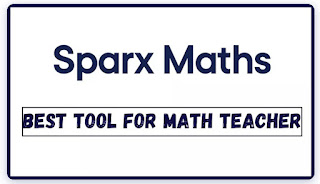Babbel vs Duolingo: Which one is best for language learning?
Babbel and Duolingo are two popular language learning apps that offer different approaches to help you learn a new language. Here's a comparison of the two:
Check the complete comaprison of babbel vs duolingo
Babbel:
Overview:
Babbel is a subscription-based language learning platform that focuses on providing practical, real-life conversation skills. It offers courses in a variety of languages and aims to help learners become proficient in speaking and understanding a new language.
Key Features:
Structured Lessons: Babbel offers well-structured lessons that focus on building conversational skills and practical vocabulary.
Real-Life Scenarios: Lessons often simulate real-life situations, helping learners apply language skills in everyday contexts.
Grammar and Vocabulary: Babbel places a strong emphasis on teaching grammar rules and vocabulary, which can be essential for effective communication.
Speech Recognition: The platform includes speech recognition technology to help learners improve their pronunciation and speaking skills.
Cultural Insights: Babbel often includes cultural insights and context to help learners understand the nuances of the language.
Offline Access: Babbel offers offline access to lessons and materials, allowing you to continue learning even without an internet connection.
Pros:
Focus on practical conversation skills.
Structured lessons with a strong emphasis on grammar and vocabulary.
Speech recognition for pronunciation practice.
Cultural insights and real-life scenarios.
Offline access to lessons.
Cons:
Subscription-based model requires payment for full access.
Fewer languages available compared to some other platforms.
Duolingo:
Overview:
Duolingo is a widely used and free language learning app that employs gamification to engage learners. It offers a variety of languages and is known for its bite-sized lessons and interactive approach.
Key Features:
Gamified Learning: Duolingo uses a gamified approach with rewards, levels, and achievements to keep learners motivated.
Short Lessons: Lessons are designed to be short and accessible, making it easy to fit learning into your daily routine.
Listening, Speaking, Reading, and Writing: Duolingo covers all aspects of language learning, including listening, speaking, reading, and writing exercises.
Crowdsourced Content: Duolingo's content is partly created by volunteers, which allows for a wide range of languages to be available.
Free Version: Duolingo offers a free version with the option to purchase a premium subscription for an ad-free experience and additional features.
Pros:
Gamified and engaging approach.
Bite-sized lessons for convenient learning.
Covers all language learning aspects.
Wide range of languages available.
Free version with optional premium subscription.
Cons:
Gamification might not suit everyone's learning style.
Less emphasis on in-depth grammar explanations compared to some other platforms.
Conclusion:
Babbel is a strong choice for learners who want a structured and comprehensive approach to language learning, with a focus on practical conversation skills and grammar. Duolingo is ideal for those who prefer a gamified and interactive learning experience, especially if you're looking for a free option with the possibility of upgrading to a premium subscription for additional features. Your choice between the two will depend on your learning preferences, goals, and whether you're willing to invest in a subscription for more in-depth language learning.



Comments
Post a Comment